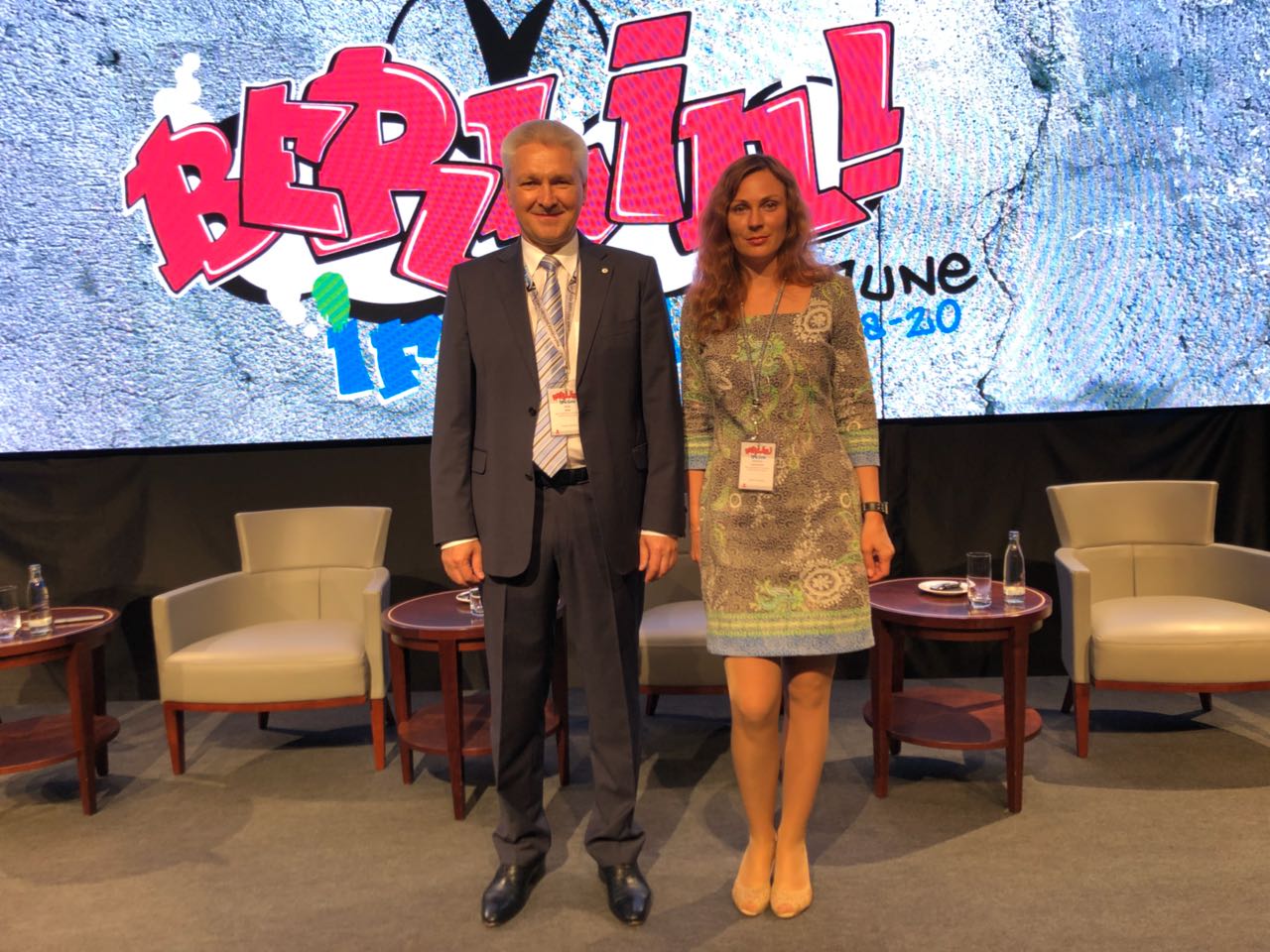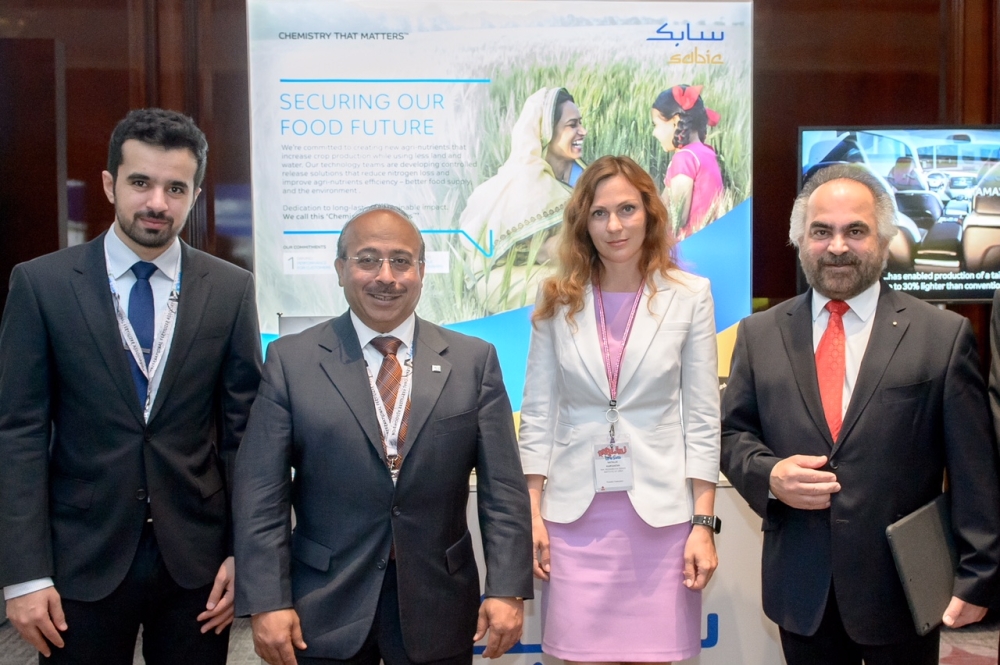07/03/2018


On June 17-20, NIIK’s delegation of President and CEO Igor Esin and Head of the Department for International Business Development Natalia Kargaeva took part in the annual conference of the International Fertilizer Industry Association (IFA), which was held in Berlin, Germany.
The focus of the reports was aimed at regional trends in the development of the fertilizer industry. Individual reports reviewed the development of the fertilizer industry in Russia, Ukraine and Brazil as well as biofuel production, which is actively used in China. Shale gas development, whose deposits were found in several countries in the Middle East, still causes certain doubts.
Projects on the construction of fertilizer production facilities on shale gas deposits, announced in the US many years ago, have not yet been fully implemented although the United States has increased the share of ammonia exports in recent years. The development of the fertilizer industry in China is of particular interest. Due to the strict imposition of environmental measures, many plants in China were closed and it is still not clear which scenario the further development of the industry will follow. Three variants are considered: the production of fertilizers inconsistent with environmental standards will be completely closed, some of the plants will be shifted and modernized or a new construction will begin. Shutdown of the fertilizer production in China in the meantime provides a certain balance of supply and demand in the world and even keeps a small reserve for the construction of new production facilities. The construction of new large production facilities in Africa was also stated. However, the lack of infrastructure makes these projects unlikely to be feasible.
"Smart" fertilization continues to evolve. When fertilizers are created customized, their content is "programmed" for specific crops and soils, and their application is controlled. These are value-added fertilizers. There is no need for a large number of them, however, they last longer and are much more effective than conventional fertilizers. They do not deplete soil and are biodegradable. A company that usually produces such fertilizers colors them afterwards, thus making the product branded.
During the conference, the delegation of NIIK held talks with analyst companies, fertilizer manufactures and partners regarding the ongoing projects both in Russia and abroad. Within the framework of the conference, NIIK also took part in IFA working group meeting on Eastern Europe and Central Asia. NIIK has been sharing data statistics on nitrogen fertilizer and gas in Russia and the countries of the former USSR for a number of years, contributing to the development of a common IFA database across countries.
The delegation of NIIK took part in the 86th IFA Annual Conference

On June 17-20, NIIK’s delegation of President and CEO Igor Esin and Head of the Department for International Business Development Natalia Kargaeva took part in the annual conference of the International Fertilizer Industry Association (IFA), which was held in Berlin, Germany.
The focus of the reports was aimed at regional trends in the development of the fertilizer industry. Individual reports reviewed the development of the fertilizer industry in Russia, Ukraine and Brazil as well as biofuel production, which is actively used in China. Shale gas development, whose deposits were found in several countries in the Middle East, still causes certain doubts.
Projects on the construction of fertilizer production facilities on shale gas deposits, announced in the US many years ago, have not yet been fully implemented although the United States has increased the share of ammonia exports in recent years. The development of the fertilizer industry in China is of particular interest. Due to the strict imposition of environmental measures, many plants in China were closed and it is still not clear which scenario the further development of the industry will follow. Three variants are considered: the production of fertilizers inconsistent with environmental standards will be completely closed, some of the plants will be shifted and modernized or a new construction will begin. Shutdown of the fertilizer production in China in the meantime provides a certain balance of supply and demand in the world and even keeps a small reserve for the construction of new production facilities. The construction of new large production facilities in Africa was also stated. However, the lack of infrastructure makes these projects unlikely to be feasible.
"Smart" fertilization continues to evolve. When fertilizers are created customized, their content is "programmed" for specific crops and soils, and their application is controlled. These are value-added fertilizers. There is no need for a large number of them, however, they last longer and are much more effective than conventional fertilizers. They do not deplete soil and are biodegradable. A company that usually produces such fertilizers colors them afterwards, thus making the product branded.
During the conference, the delegation of NIIK held talks with analyst companies, fertilizer manufactures and partners regarding the ongoing projects both in Russia and abroad. Within the framework of the conference, NIIK also took part in IFA working group meeting on Eastern Europe and Central Asia. NIIK has been sharing data statistics on nitrogen fertilizer and gas in Russia and the countries of the former USSR for a number of years, contributing to the development of a common IFA database across countries.